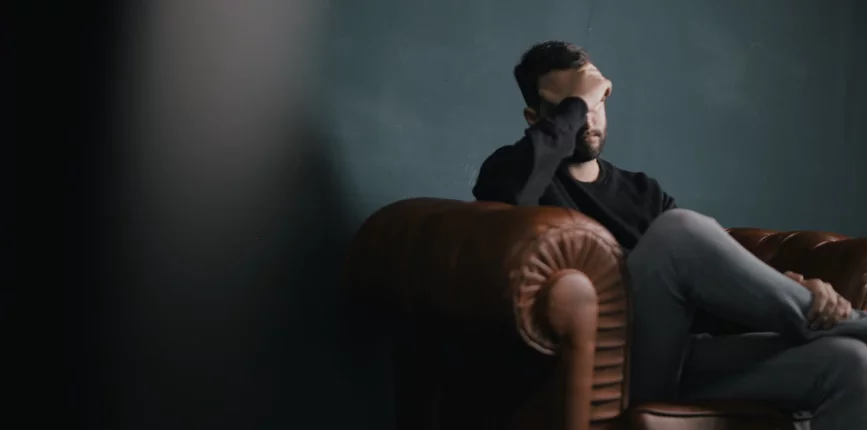What Happens If You Violate Probation?
What happens if you violate probation?
If you were convicted of a crime and placed on probation by the court, you know how difficult probation can be. With that said, violating probation will likely result in a more difficult situation, which may involve fines and prison time.
In this article, you will discover what happens if you violate probation and how a criminal defense attorney may be able to help.
What Happens If You Violate Probation?
If you or someone you love is currently on probation, you have probably already discussed the terms of your sentence in court. This may include adhering to a curfew, remaining on house arrest, refraining from the use of drugs and alcohol, or simply committing to good behavior at all times.
But what happens when someone violates these terms? It might surprise you to learn that the consequences can be extremely serious – so serious that they can even include revocation and immediate incarceration.
Here’s what happens if you violate probation …
The Goal of Probation
In order to understand probation violations and what sort of consequences one might face for committing them, you need to know what probation really is. At its heart, this sentencing option allows you to serve your sentence without spending time in jail. It is often assigned instead of jail time altogether, especially for lesser crimes, but may also be used afterward to increase the court’s confidence in future behavior.
Probation orders always contain very specific terms or guidelines for the convicted individual’s good behavior. These may be specific (e.g., avoid alcohol and drugs) or generalized (e.g., don’t break the law).
The courts may also make other elements part of the probation terms, especially if they believe they will prevent harm and ensure compliance. This may include orders of protection, mandated psychotherapy, addiction counseling, a curfew, or even the need to live at a certain address and maintain active employment.
The Importance of Understanding Terms
A probation is, in effect, a contract – it gives the courts the right to mete out further punishment if the offender who agrees fails to hold up their end of the bargain. It is also just as legally binding as a contract in the eyes of the court.
What this means is that every term within the order matters just as much as the others listed beside it. In fact, violating even a portion of one term is enough to qualify someone for additional punishments or revocation of probation. That’s why it’s so important for offenders to be aware of the terms they agree to in the first place.
The courts, and most probation officers, will go to extreme lengths to prevent misunderstandings by making the offender sign and swear they understand. Still, if you are confused about any of the elements in, it is the offender’s responsibility to ask for clarification. Failing to fully comprehend terms is not an excuse for a violation.
In the next section, we’ll outline the most common probation terms to help you identify which ones might apply to your case. However, it is important to note that the court has the freedom to change, limit, or expand many of these entries at any time.
The Most Common Terms and Violations
As with any other area of the law, ignorance of the law – or in this case, the probation order terms – isn’t an excuse for noncompliance. It is the offender’s responsibility to understand the terms, how they apply to them, and what to do if a situation arises that forces them to violate a condition against their own will. Trying to excuse a violation, outside of absolute emergencies, is simply not an option.
Despite the fact that every probation order is unique (the courts can freely add, subtract, or remove terms as they see fit), being aware of what you might find on the average order can be extremely helpful.
Regular Reporting
In all but the rarest cases, offenders will be required to report to a police officer, probation officer, or some other law enforcement official on a regular basis. This may be in person, by telephone, or even just via email depending on the case. It is the supervising officer’s job to monitor the offender as well as aid them in identifying resources to help them move forward and live a crime-free life.
Failing to report for any reason (even if out of the offender’s control) may result in immediate arrest. However, most probation orders contain specific guidelines for what to do if an appointment or call is missed. For example, an order might include a grace period of 24 hours for true emergencies.
Making Restitution
When an offender is convicted of a crime that results in some type of loss to the victim – e.g., stolen or damaged property – the courts may demand they make restitution during probation. This is usually in the form of cash. For example, someone who stole and destroyed a neighbor’s vehicle while drunk may be required to make monthly payments to the victim until the full cost of replacement is met.
Generally, missing any payments is considered a probation violation; it may result in immediate arrest, revocation, or additional fines. However, this assumes that the offender simply doesn’t pay. The courts are reasonable, and in most cases, if true hardship exists, they will allow the offender to adjust payments. For example, if the offender has a large medical bill to pay first, payments may be offset temporarily.
Community Service
Community service – time spent working in the community or for a good cause on a volunteer basis – is exceptionally common in probation orders. Not only does it help the offender re-integrate into the community, but it also shows them a better way to live without engaging in dangerous behaviors while giving back.
Failing to show up for community service, outside of absolute emergencies, is one of the absolute worst violations possible. The courts tend to view this extremely harshly and rarely give any exceptions when the skip is intentional. It almost always results in revocation, arrest, and incarceration.
But what if there is a true emergency, such as a medical crisis? The offender should then communicate with the officer, or have someone they trust communicate for them, right away. He or she may simply excuse the skip or make other arrangements.
Drug Testing
The courts often use drug testing to help offenders stay sober, especially where there are clear addiction issues and/or the crime involved intoxication. Failing to show up for a drug test is the most severe violation here, mostly because it is viewed as intentionally deceptive. While failing a drug test (sometimes referred to as “peeing dirty”) is still a violation, it is far better to admit to drug use, ask for help, and accept any consequences than to try to avoid the test altogether.
Still, whether failed or missed, a drug testing violation nearly always results in the same eventual consequences: arrest, incarceration, or possibly, mandated inpatient rehabilitation treatment and therapy. Honesty is still the best policy.
Remaining Employed
Many court processes seek to help offenders get, and stay, employed – this can prevent criminal behavior and ensure the offender is self-sufficient. Thus, some probation orders will contain a demand to remain employed at all times. Some may also define where and when the offender can work, while others simply require that they be actively working and/or seeking work on a daily basis.
It is important to note that failing to secure work and maintain work for reasons outside of the offender’s control (e.g., no-fault layoffs) are not generally considered a violation. These are simply a fact of life in the working world.
Quitting, on the other hand, may result in revocation of the order, arrest, incarceration, or tightened probation terms. Good communication and tracking (e.g., keeping a list of days worked or applications handed out) can help prevent this.
Agreeing to Random Searches
Nearly all probation orders contain a term demanding that the offender agrees to randomized searches if and when the probation officer deems them necessary. This can be tough because it essentially gives the courts the right to send an officer into the home to search without any notice. However, the good news is that this is rarely used unless there is some specific suspicion at play.
Offenders simply cannot refuse to allow a search, full stop. The probation order itself serves as a search warrant, meaning that officers will simply proceed without permission. If the offender attempts to interfere with the search, he or she will be arrested, and likely, incarcerated.
Where searches turn up contraband, such as illegal firearms, this is cause for immediate revocation of the probation order with incarceration. Furthermore, it greatly reduces the chances of successfully securing another probation order and/or a bond.
Conclusion
Now that you know what happens if you violate probation, you might want to reconsider any action you’re about to take that might break your terms.
Many of the most common terms listed here aren’t just markers for violations with serious consequences like revocation or arrest.
They also serve as a decent standard for good behavior; even if they aren’t included specifically, adhering to them can help the offender stay on the straight and narrow. Still, if you believe you or someone you know has violated probation, your first step should be to contact an attorney for guidance on how to proceed.
If you need help finding an attorney, contact your local attorney referral service to find a good match for your needs.
Are you in search for a certified attorney to represent you?
Let us help you find one today!



